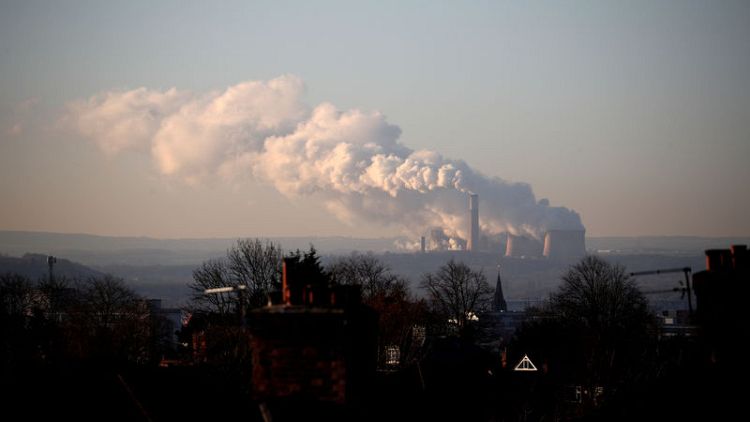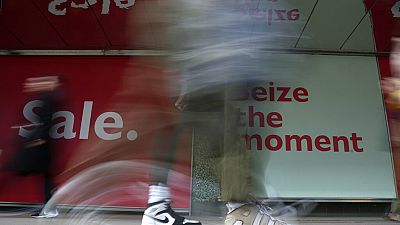By Susanna Twidale
LONDON (Reuters) - A British tax on carbon dioxide (CO2) emissions from power stations and factories would begin on Nov. 4 if the country leaves the European Union without a deal on Oct. 31, the UK government said.
The tax, set at 16 pounds a tonne for 2019, would replace levies under the European Emissions Trading System (ETS), which Britain would automatically leave under a no-deal scenario.
Britain is the second-largest emitter of greenhouse gases in Europe and its utilities and industry are among the largest buyers of permits in Europe's ETS, which charges power plants and factories for every tonne of carbon dioxide (CO2) they emit.
All current UK operators of stationary installations participating in the ETS would be set an emissions allowance for the purposes of the tax, the Department for Business, Energy and Industrial Strategy (BEIS) said in an email sent to stakeholders and seen by Reuters.
"Emissions above the tax emissions allowance would be taxed on a carbon equivalent basis with installations required to make one payment a year to cover the tax due," the notice said.
If Britain leaves the European Union with a deal it said it intends to stay in the ETS until the end of the current trading phase at the end of 2020.
It is also working on a domestic emissions trading system that it hopes will link to the existing EU scheme from January 2021. [nL5N20M4W2]
BEIS said that a consortium of IT group Trasys and Unisystems had been chosen to build and design a UK Emissions Trading registry to replace the functions of the EU registry currently used by UK businesses.
(Reporting by Susanna Twidale; Editing by David Goodman)



